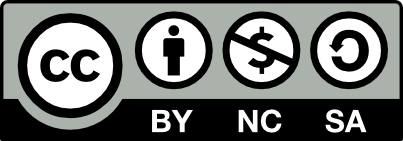Penguatan Pengetahuan Dan Pelaksanaan Kegiatan Intervensi Terkait Hipertensi Pada Kader Dan Masyarakat
Abstract
Based on data from the Elderly Posbindu, PTM Posbindu, and a preliminary study conducted on residents of RW.02 Pondok Jaya Village, District Pondok Aren, South Tangerang City shows that RW.02 has the highest hypertension rate compared to other RW. Responding to existing health problems, it is necessary to carry out public health interventions in order to address health problems in that location. The implementation method that has been carried out in Field Learning Experience (PBL) activities with 4 stages, namely the plan of action stage, implementation stage, monitoring stage, evaluation stage. The plan of action stage is the preparation of an intervention program plan based on the results of the Village Community Consultation (MMD). The implementation stage has 2 activities, the first is Empowering Active, Independent, and Able to Handle Hypertension Cadres (AMUNISI) and Empowering Hypertension Aware Families (GADARSI). The monitoring stage is carried out during joint visits between groups and cadres to the RW 02 community door to door by recording blood pressure and checking the drug compliance sheet. In the evaluation stage, it is known that the Wilcoxon test p-value is 0.007 which shows that the increase in cadre knowledge before education is smaller than after education and the p-value is <0.0001 which shows that there is an increase in community knowledge before education is given smaller than after education.
References
Fauzi, R., Efendi, R., & Mustakim, M. (2020). Program Pengelolaan Penyakit Hipertensi Berbasis Masyarakat dengan Pendekatan Keluarga di Kelurahan Pondok Jaya, Tangerang Selatan. Wikrama Parahita: Jurnal Pengabdian Masyarakat, 4(2), 69-74.
Imas, M., & Nauri, A. (2018). Metodelogi Penelitian Kesehatan. In Bahan Ajar Rekam Medis dan Informasi Kesehatan (hal. 1–27).
Irmawartini, & Nurhaedah. (2017). Meode Penelitian. In Metodelogi Penelitian (hal. 1–185).
Kalangi, J. A., Umboh, A., & Pateda, V. (2015). Hubungan Faktor Genetik Dengan Tekanan Darah Pada Remaja. Jurnal E-Clinic, 66-70
Laporan Kinerja Instansi Pemerintah (LKjIP). (2022). Dinkes Kota Tangerang Selatan. Diakses pada https://dinkes.tangerangselatankota.go.id/
Rahmah, E. Y., Yulianti, A. B., & Indrayana, E. S. (2021). Scoping Review: Kepatuhan Konsumsi Obat dalam Kontrol Tekanan Darah pada Pasien Hipertensi. Prosiding Pendidikan Kedokteran, 7 (1), 95–101. http://repository.unisba.ac.id/handle/123456789/29870
Rinaldi, S. F., & Mujianto, B. (2017). Metodologi Penelitian dan Statistik. In Bahan Ajar Laboratorium Medis (TLM).
Rita, S. (2017). Faktor Yang Mempengaruhi Hipertensi Di RSUD Dr. Rm. Djoelham Kota Binjai. Jurnal Publikasi Kesehatan Masyarakat Indonesia, 4(3), 6.
Rusiani, H. (2017). Gambaran Pola Konsumsi Pada Lansia Penderita Hipertensi. Skripsi, April, 1–63.
Setyonaluri, D., & Aninditya, F. (2019). Transisi Demografi dan Epidemiologi: Permintaan Pelayanan Kesehatan di Indonesia. Direktorat Kesehatan dan Gizi Masyarakat, Kementerian PPN/Bappenas.
Sari, Y. H., Usman, Majid, M., & Sari, R. W. (2019). Faktor-faktor yang Berpengaruh Terhadap Kejadian Hipertensi Pada Lansia Di Wilayah Kerja Puskesmas Maiwa Kab. Enrekang. Jurnal Ilmiah Manisia dan Kesehatan, 68-79.
Suparta, & Rasmi. (2018). Hubungan Genetik Dan Stress Dengan Kejadian Hipertensi. Jurnal Ilmiah Kesehatan Pencerah, 117-125.
Tirtasari, S., & Kodim, N. (2019). Prevalensi dan karakteristik hipertensi pada usia dewasa muda di Indonesia. Tarumanagara Medical Journal, 1(2), 395-402.




